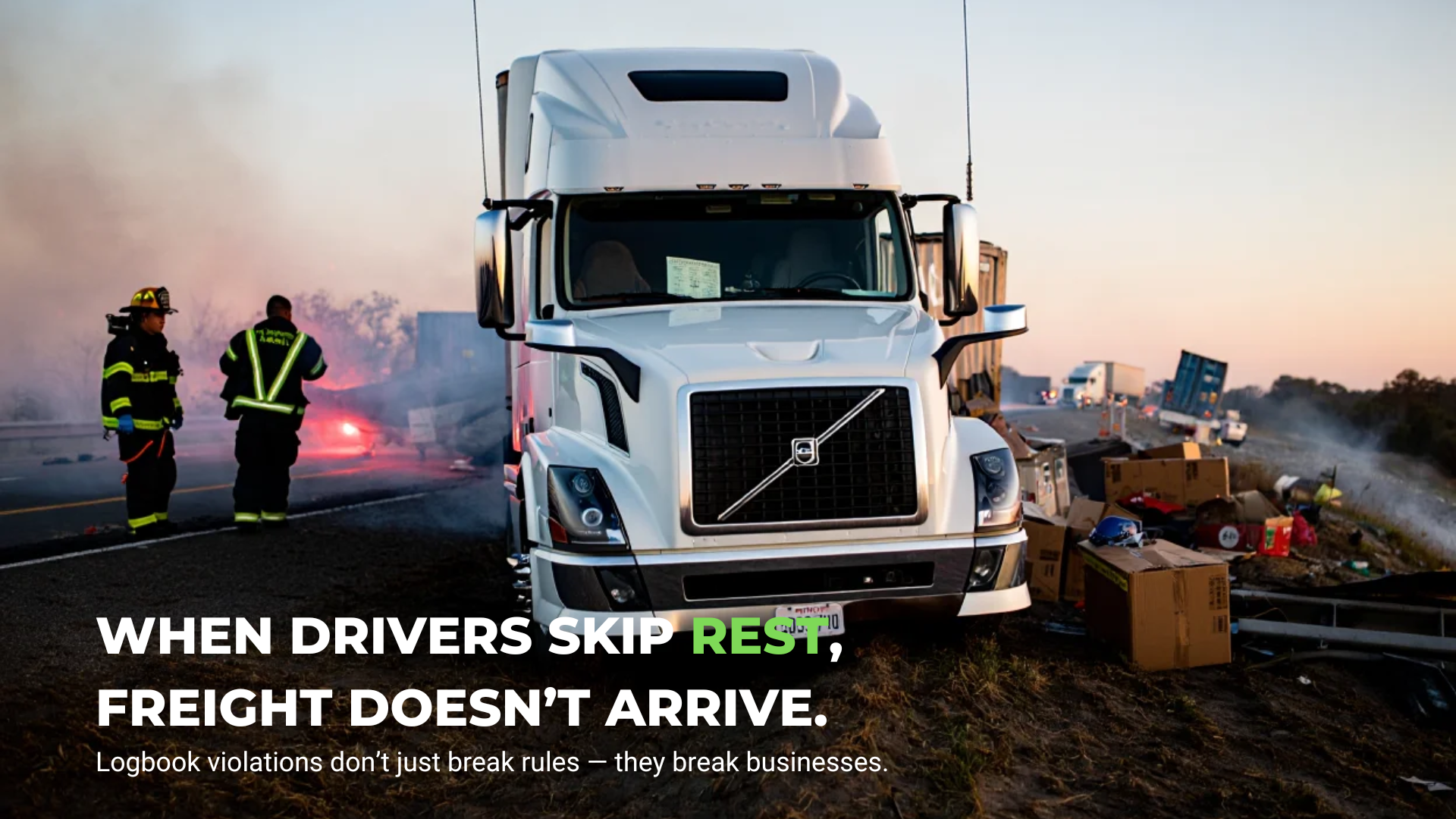How One Logbook Violation Triggers a Chain of Losses — From Fines to Lost Freight
“Would you really trust your freight to someone who sleeps four hours a night?”
In the logistics world, there’s an unspoken rule: if the truck arrives, all is well. But here’s the paradox—most problems begin after the delivery. Logbook violations (electronic driver logs) aren’t just paperwork mistakes. They’re ticking time bombs. And yes, they explode loudly—with damaged freight, lawsuits, and reputations in ruins.
According to FMCSA, over 30% of truck-involved accidents in the U.S. are caused by driver fatigue. Want to guess what’s most often violated in those cases? That’s right—the logbook.
What Is a Logbook and Why Does It Matter?
Literally—it’s about survival. Yours and your business’s.
The Logbook (also known as an ELD – Electronic Logging Device) is a digital diary that tracks everything: how long the driver drives, rests, starts and ends their shift. The law doesn’t just require you to keep it. It demands strict adherence to working and resting hours.
Why does this matter?
- Because a tired driver is 40 tons of steel with no reflexes.
- Because in the event of an accident, the logbook is the first thing insurance companies check.
- Because if there’s a violation—insurance may not cover the loss. At all.
The Logbook Is Violated. What Happens Next?
Welcome to the loss cascade.
Scenario 1: Accident.
The cargo is damaged or lost. Fines. Court. Reputation shattered. The client walks away.
Scenario 2: DOT inspection.
Violations are recorded. The company and the driver take a hit to their CSA score. That means fewer loads, less trust from brokers, and higher insurance premiums.
Scenario 3: Force majeure.
The truck breaks down mid-route. The driver is “off the clock.” They can’t drive, but the cargo is time-sensitive. Who’s to blame? Everyone: the client, the broker, the carrier. Everyone loses.
“So what if it’s violated?” — Here’s what
This isn’t about paperwork. It’s about business psychology. A logbook violation is a signal:
- The driver is overworked. That means risk is maxed out.
- The carrier breaks basic rules. That means they’re unreliable.
- The broker doesn’t vet partners. That means they’re careless.
Now imagine: you’re a CEO. You’ve arranged a $300,000 delivery. And you hear: “Sorry, our driver didn’t rest properly—the freight went off the road.” How does that sound?
How to Avoid the Catastrophe
1. Logbook control = business control
Review ELD reports before loading. Demand confirmation from the driver and the carrier.
2. Work only with verified brokers
Reliable logistics brokers monitor logbook compliance. They know who’s been on the road for 60 hours—and who’s fresh.
3. Think three steps ahead
A violation today = a lost client tomorrow. Clients don’t forgive missed deadlines. Especially when their logistics are part of a financial model.
Final Word: Logistics Is Chess, Not Darts
Every move matters. Every detail can become fatal. The logbook isn’t just a requirement. It’s your business partner in digital form. Ignore it—and you’re gambling with your freight, your money, and your reputation.
Remember: you’re not just transporting goods. You’re transporting trust.
Think Carefully: Who Are You Working With?
Do you entrust your freight to people who check logbooks? Or to those who gamble with time and sleep?
If you want your load to arrive safely and on time—not just “somehow”—work with those who play by the rules.
Learn how we at EcoHub Logistics ensure logbook compliance and cargo safety, right down to the last mile.

